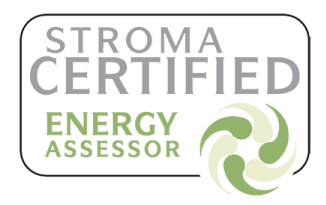How to Improve Your EPC Rating: Top Tips for a More Energy-Efficient Home
An Energy Performance Certificate, or EPC, is an important rating system that measures the energy efficiency of your home and is essential for property owners in the UK and many other countries. The rating system runs from A to G, with A representing the most energy-efficient homes and G representing the least efficient. Not only is an EPC a legal requirement when selling or renting a property, but it also provides valuable insights into your home’s energy consumption and potential savings. If you’re looking to improve your EPC rating, there are numerous practical steps you can take to make your home more energy-efficient, saving you money in the long run and reducing your environmental impact. Below are our top tips for improving your EPC rating, covering key areas where you can make impactful changes to boost your home’s energy performance.
1. Insulate Your Home
One of the most effective and immediate ways to improve your EPC rating is to insulate your home properly. Insulation helps to trap heat inside during the colder months and keep your home cool during the warmer seasons, dramatically reducing the amount of energy needed to heat or cool your living space. By ensuring your home has sufficient insulation, you can prevent heat loss, which is a major cause of energy inefficiency. Insulating your walls, whether they are cavity or solid walls, your loft, and even your floors can make a substantial difference in both your EPC rating and overall comfort. Cavity wall insulation, in particular, is one of the most cost-effective improvements you can make. Loft insulation is another affordable and simple upgrade, with significant energy savings for years to come. Even insulating around windows and doors can reduce drafts and heat loss, contributing to an improved EPC score and reduced energy bills.
2. Upgrade Your Windows
While upgrading windows is typically a more expensive home improvement, it can have a major impact on your home’s energy efficiency and your EPC rating. Many homes, particularly older ones, still have single-glazed windows, which allow a lot of heat to escape. Switching to double-glazed or even triple-glazed windows offers much better insulation, reducing the amount of energy required to heat your home in winter. Double-glazed windows work by creating an insulating barrier between the panes, keeping the warmth in and the cold out. In addition to improving your EPC rating, energy-efficient windows can significantly enhance your home’s comfort and help reduce noise pollution from the outside. You may also consider investing in energy-efficient doors that offer better insulation. In the long run, while the initial investment may be high, the savings on energy bills and the increase in property value can make upgrading windows a worthwhile decision. It’s a good idea to check for grants or incentives for energy-efficient home improvements, which could help offset the cost.
3. Install Energy-Efficient Heating Systems
Heating is one of the most significant contributors to energy usage in the home, so upgrading your heating system is an excellent way to improve your EPC rating. Older boilers are far less efficient than modern systems, which means they use more energy to produce the same amount of heat. Installing a new condensing boiler, which is highly efficient at converting fuel into usable heat, can drastically improve your home’s energy efficiency. Similarly, upgrading to renewable heating options such as air-source or ground-source heat pumps can lead to a major improvement in your EPC rating. Heat pumps extract heat from the outside air or ground and use it to heat your home. Although they are a more sustainable option, it’s important to note that heat pumps may require significant changes to your home’s existing heating infrastructure, such as larger radiators or underfloor heating systems. These upgrades are usually more suitable for homes that have undergone extensive insulation work to prevent heat loss. Nonetheless, even without such upgrades, simply upgrading to a more efficient traditional heating system can help you cut down on energy usage and improve your EPC score.
4. Use Energy-Efficient Lighting
Switching to energy-efficient lighting is one of the easiest and most cost-effective ways to reduce your energy consumption and improve your EPC rating. Traditional incandescent light bulbs use a lot of energy, converting most of it into heat rather than light. LED bulbs, on the other hand, use up to 90% less energy and last significantly longer, making them a smarter choice for both your home and the environment. Compact fluorescent lamps (CFLs) are another energy-efficient alternative that can reduce energy usage by up to 75% compared to standard bulbs. While the savings per bulb might seem small, when multiplied across your entire home, they can add up to a noticeable reduction in energy bills. Energy-efficient lighting not only improves your home’s EPC rating but also lowers maintenance costs, as you’ll need to replace bulbs far less frequently. Additionally, using smart lighting systems that allow you to control lights remotely or set them to turn off automatically when not in use can further enhance energy savings and improve your home’s overall energy efficiency.
5. Make Use of Renewable Energy Sources
Incorporating renewable energy sources into your home is a highly effective way to improve your EPC rating and reduce your carbon footprint. Solar panels, for example, allow you to harness energy from the sun to power your home, reducing your reliance on traditional, non-renewable energy sources such as gas or electricity from the grid. Wind turbines, while less common in residential areas, are another option for generating renewable energy. Depending on the size and location of your property, installing a small wind turbine can contribute significantly to your home’s energy needs. Solar water heaters can also be used to heat water using energy from the sun, further reducing your energy consumption. In addition to improving your EPC rating, renewable energy systems can result in long-term savings on energy bills, and many countries offer financial incentives or grants for homeowners who invest in renewable technologies. While the initial costs of installing renewable energy systems can be high, the savings and environmental benefits make it a valuable investment for the future.
6. Conduct an EPC Assessment
If you are uncertain about the current state of your home’s energy efficiency or which areas to focus on for improvement, conducting a thorough EPC assessment is a great place to start. An EPC assessment will provide you with a detailed report on the energy performance of your home, outlining both its strengths and areas that need improvement. The report will also include a list of recommended actions you can take to improve your EPC rating, as well as the potential cost savings associated with each improvement. This will give you a clear plan for making your home more energy-efficient and enhancing your EPC rating. Moreover, an EPC assessment can be invaluable if you are planning to sell or rent your property, as a higher EPC rating can make your home more attractive to potential buyers or tenants. With the insights gained from the assessment, you can prioritize energy-saving upgrades that offer the best return on investment.
Improving your EPC rating not only enhances the energy efficiency of your home but also offers long-term financial and environmental benefits. From insulating your home to upgrading windows, installing energy-efficient heating systems, using energy-efficient lighting, making use of renewable energy sources, and conducting a detailed EPC assessment, there are many strategies you can implement to improve your home’s energy performance. These changes not only help reduce your energy bills and improve your property’s value but also contribute to a more sustainable future by lowering your home’s carbon footprint. Whether you’re looking to sell, rent, or simply improve your home’s comfort, investing in energy efficiency is a smart and responsible choice that pays off in multiple ways. Take action today and enjoy the benefits of a more energy-efficient home for years to come.


